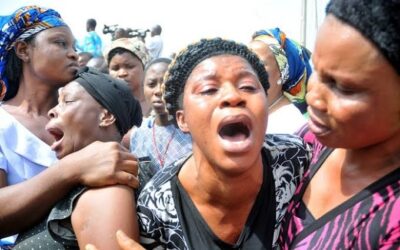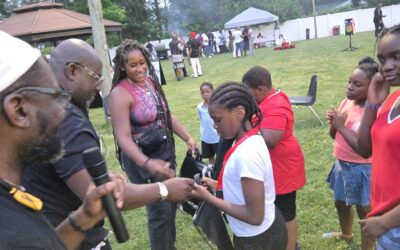The 16th Annual Professor Wole Soyinka Lecture Series held on Friday July 12, 2013,
At the Ibom Le Meridien Hotel, Uyo, Akwa Ibom State.
Protocols
On behalf of the National Association of Seadogs, Pyrates Confraternity, I welcome you from all over the world to the emerging cosmopolitan city of Uyo which of recent has become the events Mecca for Nigeria.
I welcome the Guest Speaker, Barrister Ekpo Nta, Chairman of the Independent Corrupt Practices Commission (ICPC). It is gratifying that we were able to get a home boy of his pedigree to speak at this lecture. For those of us who have followed his sterling career, his choice as guest speaker was considered most appropriate. We hope that his acceptance to speak at this lecture will provide him a better perspective of who we are as Seadogs or Pyrates. We are happy and welcome the proposed merger of the ICPC with the Economic and Financial Crimes Commission (EFCC) by Government. We hope to explore a proposal by the Former EFCC Chairman, Nuhu Ribadu when he spoke at one of our public events to enter into a Memorandum of Understanding with NAS on how to jointly combat corruption in Nigeria. We are still open to collaborating with Government to rein in this scourge and look forward to a similar gesture from the ICPC.
I welcome in a most special way the Chairman of this occasion, my mentor, friend and boss, Barrister Udom Uko Inoyo, Executive Director, Mobil Producing Nigeria and In-country Human Resources Manager of ExxonMobil Companies in Nigeria. Although over the years he had placed himself on some form of suspended animation, Udom had continued to be a pyrate at heart and in deeds. As a leader, he is respected for his high personal standards and integrity and is known to painstakingly evaluate every transaction he involves himself with to ensure the moral higher ground is taken. His conceptualization of the Inoyo Toro Foundation has sustained contributions to the development of education in Akwa Ibom State over the last five years through various programmes; that exactly is the hallmark of any true pyrate, standing up for the community whenever it needs a helping hand.
I also welcome, the man in whose name we are gathered here today, our great Iconic Leader and Founder, Professor Wole Soyinka, Africa’s First Nobel Laureate in Literature. Despite his busy schedule he has been able to make it to this year’s event. Typically, his policy over the years had been to stay away from these events that seek to honour him and to go far away as possible from the maddening crowd to enjoy his birthday in the peace and comfort of his family and close friends. But this year we have been able to draw him out and get him to be with us in body and spirit; a testimony to the great premium he pays to fighting these twin evil, ethical deficit and corruption, which we have identified as the bane of Nigeria’s development.
Ahoy Capoon Blood of Tortuga, Emeritus Matelot, you are not highly welcome atos. It would please you to know that over the past twelve months, we have mounted various platforms to speak out on the deep seated crisis of nation building confronting Nigeria in the early years of the 21st Century. Great minds have been brought together from the nooks and crannies of this sprawling country to discuss and proffer solutions to Nigeria’s plethora of problems. In October 2012, days before the expiration of time allotted to receiving appeals on the Green Tree Agreement arising from the International Court of Justice judgment ceding Bakassi, a Nigerian territory to Cameroon, NAS embarked on a global campaign to compel the Federal Government of Nigeria to appeal the judgment based on fresh facts obtained to support Nigeria’s claim of ownership of the territory.
What happened? After a semblance of seriousness, political drama and some motion without movement, which gave a glimmer of hope to the Bakassi people, the Federal Government made an about-turn and the hopes of over 300,000 Nigerians of Bakasssi origin was dashed. Uprooted, dispossessed and alienated from their ancestral land and home, the Bakassi people are yet to be settled as promised by the Federal Government of Nigeria. Reason for this? Your guess is as good as mine; Corruption! That social malaise which has assumed the status of an epithet that describes our collective existence as Nigerians.
In November 2012, the oil city of Warri provided yet another platform for NAS to sound the alarm bells that the country was headed towards a major disaster if the Boko Haram and other separatist activities were not nipped in the bud. This was during the occasion of the 7th Ralph Opara Memorial Lecture Series in honor of one of the Seven Founders of the Pyrates Confraternity, Dr. Sam Amadi, the erudite Chairman of the Nigeria Electricity Regulatory Commission who spoke on the topic “Terrorism, Ethnic Irredentism and Insecurity in the Country”, provided key insights into the challenges that Nigeria was facing. A major conclusion reached at that forum was that corruption was behind the acts of terrorism, militancy and religious fundamentalism that were rearing their ugly heads in the country. A call for action was canvassed.
In February 2013, our ship journeyed to the Lagos archipelago and dropped its anchor in the waters of the Panama (Ikeja) Chapter of NAS with the hosting of a National Summit. The discussion at that Summit centred on National Integration. The Plenary Session of the Summit involved the lecture, “The Citizen and Indigene: A Case for National Integration” delivered by Dr. Chidi Odinkalu, Chairman, National Human Rights Commission, NHRC, followed by robust interactive workshop sessions which drew participants from a broad and diverse spectrum of the audience. The Summit made a number of recommendations on how to actualise Nigeria’s integration almost 100 years after the Northern and Southern Protectorates of Nigeria and the Colony of Lagos became one country. It reiterated its optimism in the possibility of actualising the Nigerian dream and the opportunities for greatness offered by the prospects of a true Nigerian nation built on an integrated citizenry that does not pander to ethnic divisions and indigene-settler dichotomy, which currently holds back the wheels of progress in our chequered journey to true nationhood.
On May 14, 2013 we sent an open appeal to the President, Goodluck Jonathan titled “Nigeria Is Teetering on the Brink of Collapse: An Open Appeal to President Goodluck Jonathan, GCFR”. In that letter, we appealed to the President and the conscience of the entire Nigerian Political leadership to take action against the “perversion, intransigence and the hostage nature of violence over our beloved nation, Nigeria,” as well as, against the “corrupt practices, brigandage, proliferation of arms and armaments and poor social and economic infrastructure” which [threaten] “to drive Nigeria over the precipice”. We also “opined” as we had done “in the past that the groans of Nigerian citizens [were] not being given due attention, as our leaders seem preoccupied with fulfilling either their personal or sectional agenda, instead of galvanizing and empowering the citizenry for unity, development and growth”. In our closing statement in the letter we made a frantic call to Mr. President, urging him “to apply [himself] to an ernest and conscientious effort to rein in corruption, graft and save this nation as it trudges down the road to perdition”. How successful our appeal has been is yet to be quantified but I guess, not very much.
Recently, in June 2013 in Houston, Texas, USA, where our 17th overseas Converge took place, we examined the question, “Is Nigeria a Failing State?” Yet again, the conclusion was that indeed the Failed State Index (FSI) reported in the 2012 edition of the USA Fund for Peace publication which placed Nigeria as 14th with FSI of 101.1 was quite reflective of the situation in Nigeria. We also corroborated the ranking of Transparency International’s 2012 Corruption Perceptions Index, which ranked Nigeria 139th out of 176 most corrupt countries in the world. In relating both reports, one major fact was the role corruption plays towards Nigeria’s failing state status. A situation which made the Washington based global advocacy group, ONE, to list Nigeria along with the Democratic Republic of Congo among the “laggard countries” pulling Africa back from attaining the Millennium Development Goals (MDG) by 2015.
Our various interventions and the compelling situation we find ourselves as a nation are clear pointers to the fact that all is not well. Deep diagnosis would reveal that the issues we have examined these past months are indicative of much bigger problems which have the potential of ripping this country apart. Today, we are gathered for the umpteenth time on a rescue mission for our country Nigeria, from the twin evils of ethical deficit and corruption, considered to be two of the major problems hampering our nation building efforts in the 21st Century. In the Press Release issued by NAS as prelude to today’s event, titled “Ethical Deficit, Corruption and the Challenges of Nation Building in 21st Century Nigeria”, we argued that “no nation can survive without strong moral and ethical foundation. Correspondingly, a nation devoid of morals and strong code of ethics is a nation without a soul. In plain speak; such a nation is without identity and can never take a pride of place in the comity of nations. Morality and ethical behaviour may seem utopic and aspirational, but those two time-honoured concepts are the transitory and transactional basis and grounding for patriotism. Our laws, mores and codes of conduct trace their origin and indeed their legitimacy to our morals and our unwritten codes of ethics….”
The Professor Wole Soyinka Lecture Series which is an annual event held in the month of July (the birth month of Professor Soyinka) was inaugurated in 1994, when the Nobel Laureate, international scholar and human rights activist, Soyinka attained age 60. It was initiated with the objective of marking the birthday and monumental achievements of one of the great men who performed the historical task of sowing the seeds way back in 1952/53 that germinated into the great Oak tree with many branches, which our organization the National Association of Seadogs (Pyrates Confraternity) has now become. Primarily, the Professor Wole Soyinka Lecture Series is aimed at promoting good governance, social justice and the advancement of democratic ideals in Nigeria and beyond. The Lecture Series has also become, for the Pyrates Confraternity, a platform to dutifully celebrate one of Nigeria and Africa’s most outstanding and enduring literary icons in the person of Professor Wole Soyinka (Nobel Laureate as well as the enviable virtues that make Wole Soyinka an asset to humanity.
Since its inception, lectures have been held in three continents around the world (Africa, Europe and North America) and speakers have been drawn from various works of life. Luminary figures have graced the lecture series, in varying capacities, thus providing a wide range of participation. Each lecture, since inception, addresses a theme of current human need – locally or internationally. This year’s event is especially dedicated to commemorate the 79th birthday of Professor Soyinka and will address the problem of ethics and corruption in Nigeria, a befitting theme to a man who has given his whole life to rid this “rum old country” of the bane of corruption. Beginning with his conceptualizing the idea to form the Pyrates Confraternity in the University College, Ibadan to fight against the degrading conformist attitude and colonial mentality that was prevalent among the emerging Nigerian student elite in the University at the time, Professor Soyinka’s life has been one that seeks for the higher moral ground.
When given the opportunity to serve this country as a Public Servant during his time as Executive Chairman, Federal Road Safety Commission (FRSC), Professor Soyinka provided an example of how a public institution should be run and isolated from the debilitating impact of corruption. Supported by many from this organization hosting the Lecture today, the FRSC was applauded by all as the first public institution of its kind in Nigeria where her Officers served with integrity, probity and distinction. The fear of the Road Marshalls was of course, the beginning of wisdom. They were not known to collect bribes from road users and always insisted on doing the right thing. Unfortunately, the involvement of NAS in the resistance against the Late Sanni Abacha regime and to enthrone democracy in Nigeria by validating the electoral victory of Late Chief M.K.O. Abiola did not help matters. In his rage to get at Professor Soyinka, Abacha set his eyes on the FRSC and in a vindictive man-hunt, purged the FRSC of anyone that was associated with him or was fingered to be a member of NAS. Today, the FRSC is a shadow of itself enmeshed in serious corrupt practices and no different from the Nigeria Police, which is often touted as one of the most corrupt public institutions in the world.
As a serious organization committed to the development of this country, we cannot simply fold our arms and do nothing. That is why we are re-engaging the Nigerian society once again to wake up to the challenge before us as a people. We are the change that this country needs and each of us must take a firm stand against corruption in order to start the ripples required to produce the waves that would usher our final emancipation from bad leadership, mal-administration and underdevelopment. Taking a stand against corruption will bring to a stop the capital flight of about 500 million dollars that leaves this country annually for Medical Tourism due to ill-equipped hospitals and demotivated medical personnel, forcing Nigerians to travel abroad for Medicare. Taking a stand against corruption will ensure that the 10.5 million Nigerian children out of the 61 million children of primary school age who are not in school worldwide are in school by provision of affordable quality schools and education. Taking a stand against corruption would reverse the situation where 70% of Nigerians currently live below the poverty line of USD $2 per day according to World Bank estimates while our Senators go home with N29.5 million monthly. Certainly, taking a stand against corruption today cannot be more costly than sitting on the fence or not taking a stand.
Ladies and gentlemen, Ahoy Seadogs, as I welcome you once again to Uyo I leave you with these words on marble by our revered Nobel Laureate, Professor Wole Soyinka and I quote: “We have enough for our needs but not enough for our greed”. May we have the courage to bequeath a better Nigeria for our children and those after them. Thank you and welcome to the welcoming and hospitable city of Uyo.
Ide Owodiong-Idemeko
NAS Cap’n
July 12, 2013



